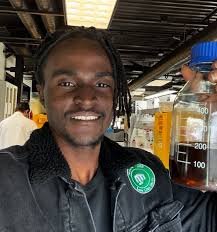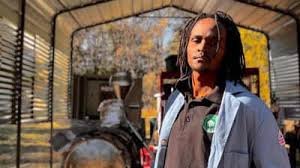Portrait of Julian Brown: Inventor & Innovator
Julian “JAB” Brown, born in Tennessee and later based in metro Atlanta (and sometimes associated with Chicago reports), emerged as a self-taught inventor and environmental pioneer in his early 20s. With no formal engineering degree, Brown began welding at age 17—a skill he credits with enabling him to build his own devices and pursue a vision that started when he was just five: “I’m gonna create something that would change the world”.
By high school, he had committed five years of his young life to developing microwave pyrolysis technology. Through NatureJab and his company Jab’s Pyrolysis & Energy Recovery, Brown built reactors powered by solar panels and generators to convert mixed plastic waste into a fuel he called “Plastoline”—a crude blend of gasoline, diesel, and jet fuel.
The Innovation: Plastoline & Impact
Brown’s process—high-powered microwave-based pyrolysis—was unique for its DIY origins and environmental framing. Many videos detailed him processing household plastic scraps, distilling them into fuel, and even running a classic truck on Plastoline before live audiences.
His work attracted both intrigue and controversy. While some fuel testing labs initially dismissed the idea as unsafe, independent GC-MS results showed Plastoline burning cleaner than standard diesel and containing detectable value compounds like styrene and BTEX.
To support his goals, Brown launched GoFundMe campaigns starting in 2023 and again in April 2025—raising tens of thousands to scale equipment like solar inverters and reactor components.

Rise to Fame & Final Public Messages
On social media, under the handle @naturejab_, Brown amassed over 1.7 million followers. He openly shared his environmental mission, described financial challenges, and explained his technical DIY methodology—part rant, part idea-sharing, part energy for change.
His innovation caught the attention of climate-focused organizations; he was recognized as a 776 Foundation Climate Fellow. He articulated a philosophy that society should view plastic not as waste but as “untapped energy”.
Disappearance & Ominous Warnings
In early July 2025 (around July 3–9), Brown posted a cryptic video warning he was “certainly under attack,” referencing “very, very odd stuff,” and urging viewers to screen-record the post because “I don’t know how long I’ll be around”.
Shortly after, his online activity abruptly stopped. By mid-to-late July, followers and media reported that Julian Brown missing had become a distressing reality, with his phone off and no confirmed sightings. Supporters launched hashtags like #FindJulianBrown and #JusticeForJAB, demanding answers as fears mounted that his disruptive technology may have made him a target.

Current Status & Unanswered Questions
- Brown remains officially missing, though no national or law enforcement agency has issued a public statement—his case hinges on social media concern and local advocacy.
- His disappearance is widely speculated to connect to his invention and sudden rise—some wonder if Plastoline’s potential disruption provoked backlash.
- As of July 28, 2025, no confirmed evidence of foul play or rescue progress has been shared publicly. His story remains unresolved, with his innovation legacy overshadowed by unresolved fear and uncertainty.
The Life & Mystery of Julian Brown
Julian Brown was a self-made inventor and environmental visionary who turned plastic waste into usable fuel with his Plastoline process. With a passion born in childhood, skills in welding and construction, and dedication to solving the global plastic crisis, he attracted significant attention—and controversy. His final weeks were marked by fear and urgency, then silence. Today, fans, environmental advocates, and authorities await answers as they hope the voice behind the innovation isn’t lost forever.
If new credible updates surface, I’ll be glad to share them.

